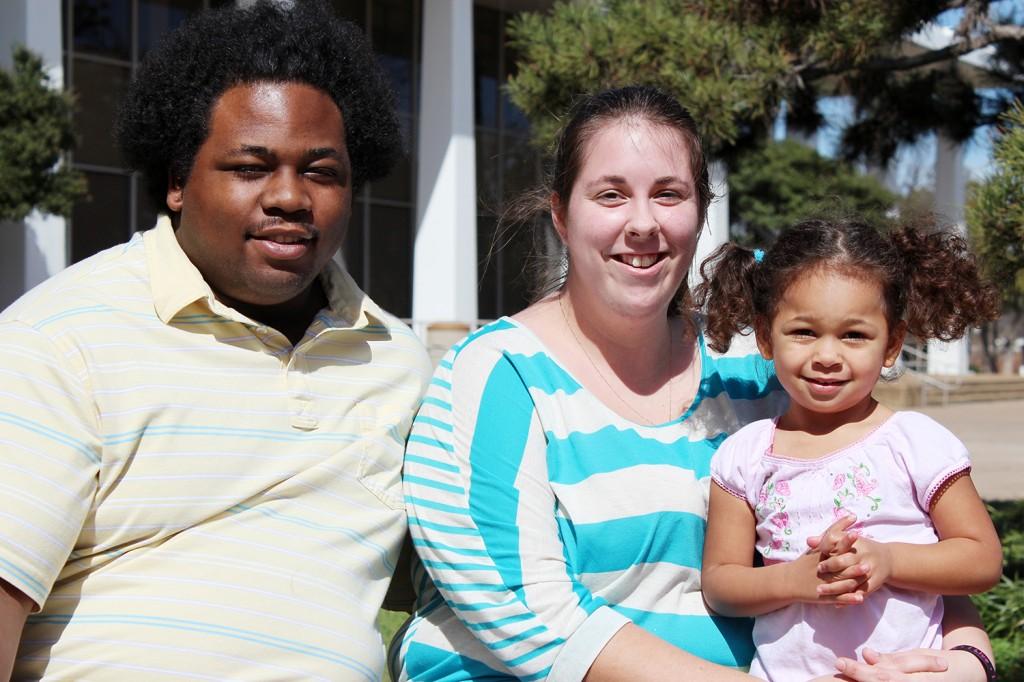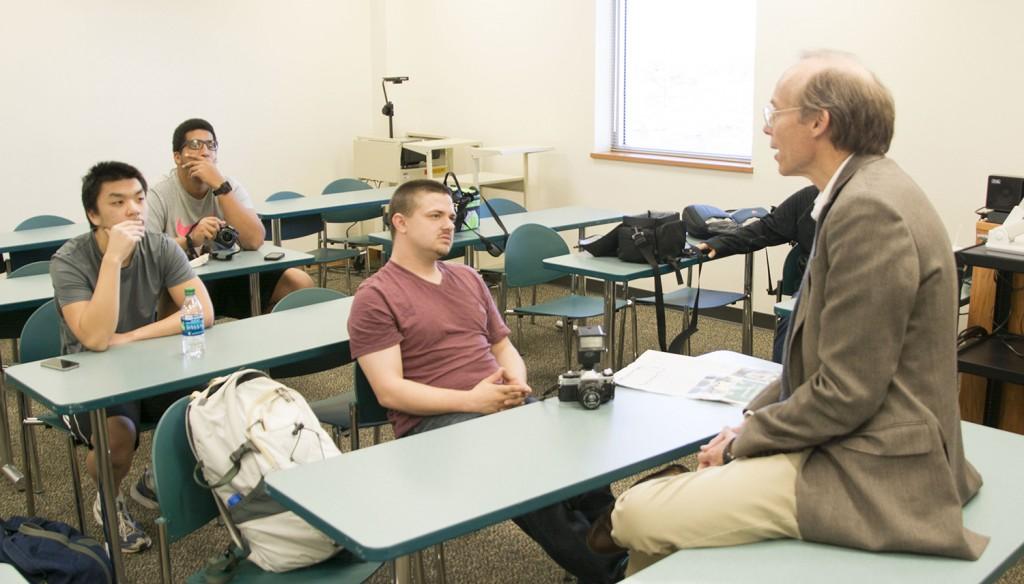By Manu Pacheco/reporter
If students ever thought that philosophy was simply a humanities course, they should think again because it could change their lives forever, a speaker told SE students Feb. 21.
The skills that philosophy teaches can be used at all levels of businesses and in all kinds of business situations, said Seth Paskin, co-founder of The Partially Examined Life podcast, during Philosophy and Why It Matters Today.
“The skills that I had learned and the kind of person that I had become by virtue of being a philosophy major made me an excellent tech support agent,” said Paskin, describing his start in the technology world.
Philosophy taught him how people communicate and how to communicate with people as well as how to be empathetic, Paskin said. Fast forward 16 years after starting in tech support, he is now the global product manager for Dell and credits philosophy.
“That is the kind of training you don’t get when you study straight-up science, biology or computer science,” he said. “You need to learn how to absorb the information and make it relevant to the topic in hand.”
The business world desperately needs these kinds of skills, Paskin said. A technical resource can be obtained anywhere in the world at any time, but this can easily be replaced by the next graduate in the upcoming year.
Skills that help a company grow are the skills that are valuable to a company. To get from point A to C without going through point B is what a company wants, and that’s the education one gets when taking philosophy courses, Paskin said.
“I’m not saying that science, technology, engineering and mathematics are not important,” he said. “I think the problem is that you are either hardcore serious practical or you’re some kind of idealist philosophy kind of guy.”
By studying the human condition, it is accessed, Paskin said. It can be through literature, philosophy or social science. Students are getting access to a way of thinking about people dynamics and organizational dynamics that give them an advantage to sustained success in the business world.
“Compassion and empathy — that’s how I live my life,” he said.
The Socratic Dialogues by Plato, Being and Time by Martin Heidegger or Morality and Sentiment by David Hume are some of the works he recommends.
Philosophy, as described by Paskin, is dialogue. Learning is by dialogue, and this can also be in a form of text or work of art, he said.
SE student James Ramos, 23, was among the students and faculty who attended.
“Philosophy will help you gain a better understanding on communicating to people in the real world,” he said.
SE English associate professor Vicky Sapp had a simple answer for how schools should approach philosophy.
“Bring speakers like him [Paskin] to tell the truth and tell it very clearly,” she said.
Paskin offered advice to all students on their approach to life.
“People may tell you, ‘Shut up and do it,’” he said. “But that shouldn’t stop someone from saying, ‘We should do things differently.’”

























